In addition to ensuring the quality of raw materials that meet the Company’s standards, the Company has announced
Biodiversity and Zero Deforestation Commitment
in line with Net-zero commitment to reduce greenhouse gas emissions according to Science Based Targets initiative (SBTi)’s guideline. The Company set a target to achieve zero deforestation for four key agricultural raw materials including maize, soy, palm oil and cassava across global operations by 2025. The Company works towards this target by developing a blockchain-based traceability system and using advanced satellite imaging technology for governance. The Company is also in progress of connecting traceability atabases with suppliers and farmers in the supply chain, along with procuring certified raw materials recognized by international standards with traceability. Notably, the Company does not use the contract farming system with feed plantation farmers both in Thailand and overseas operations.
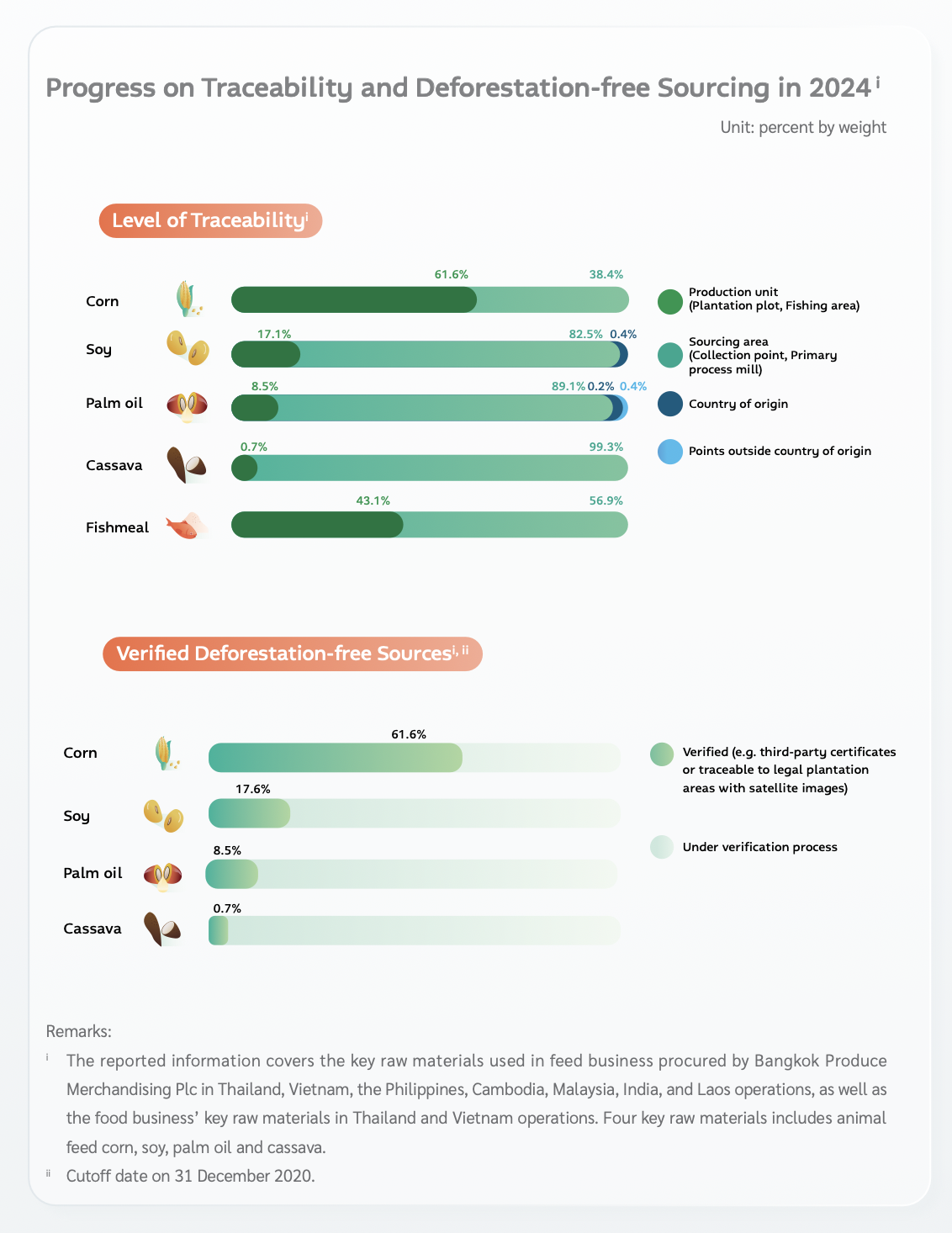
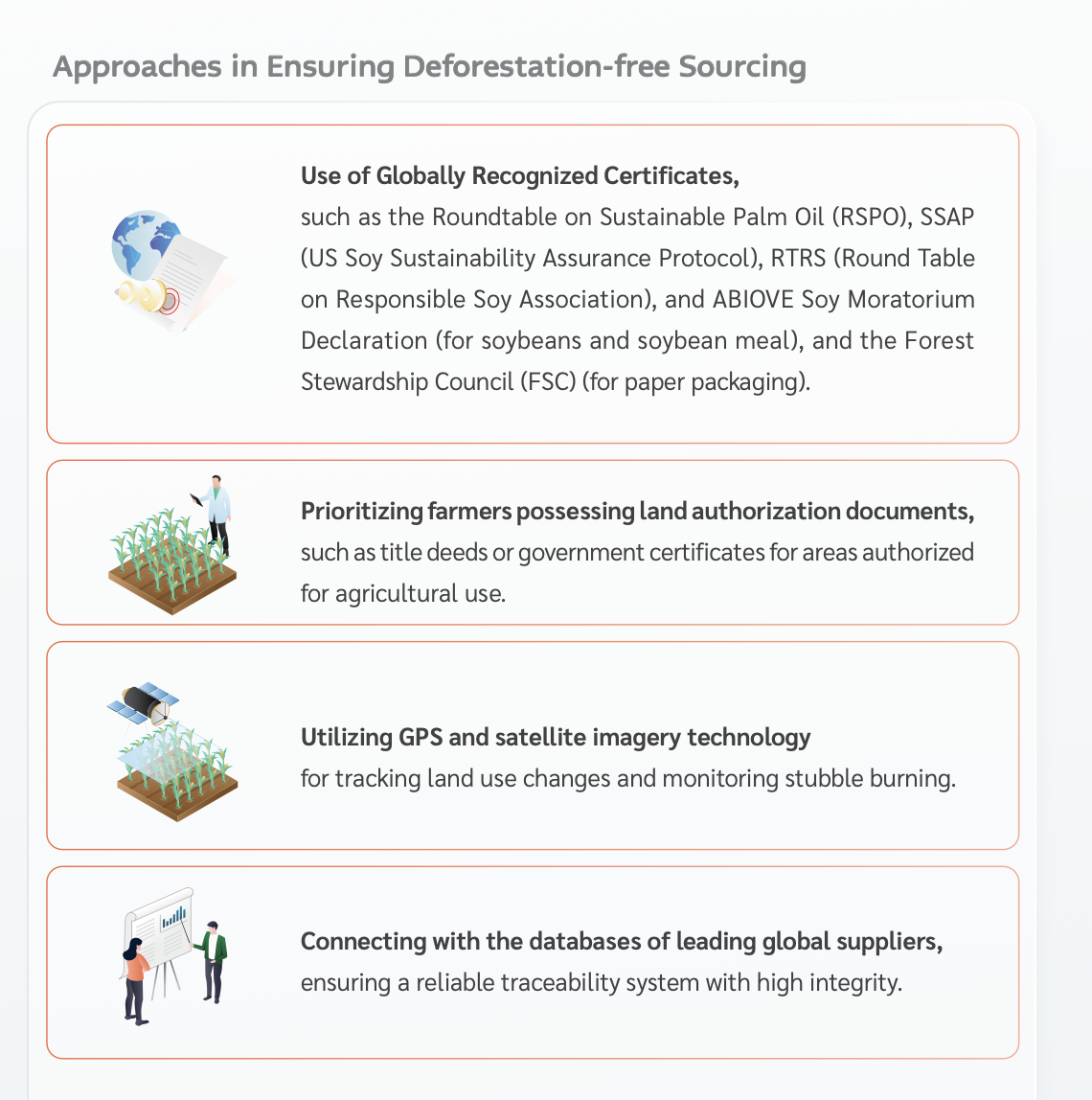
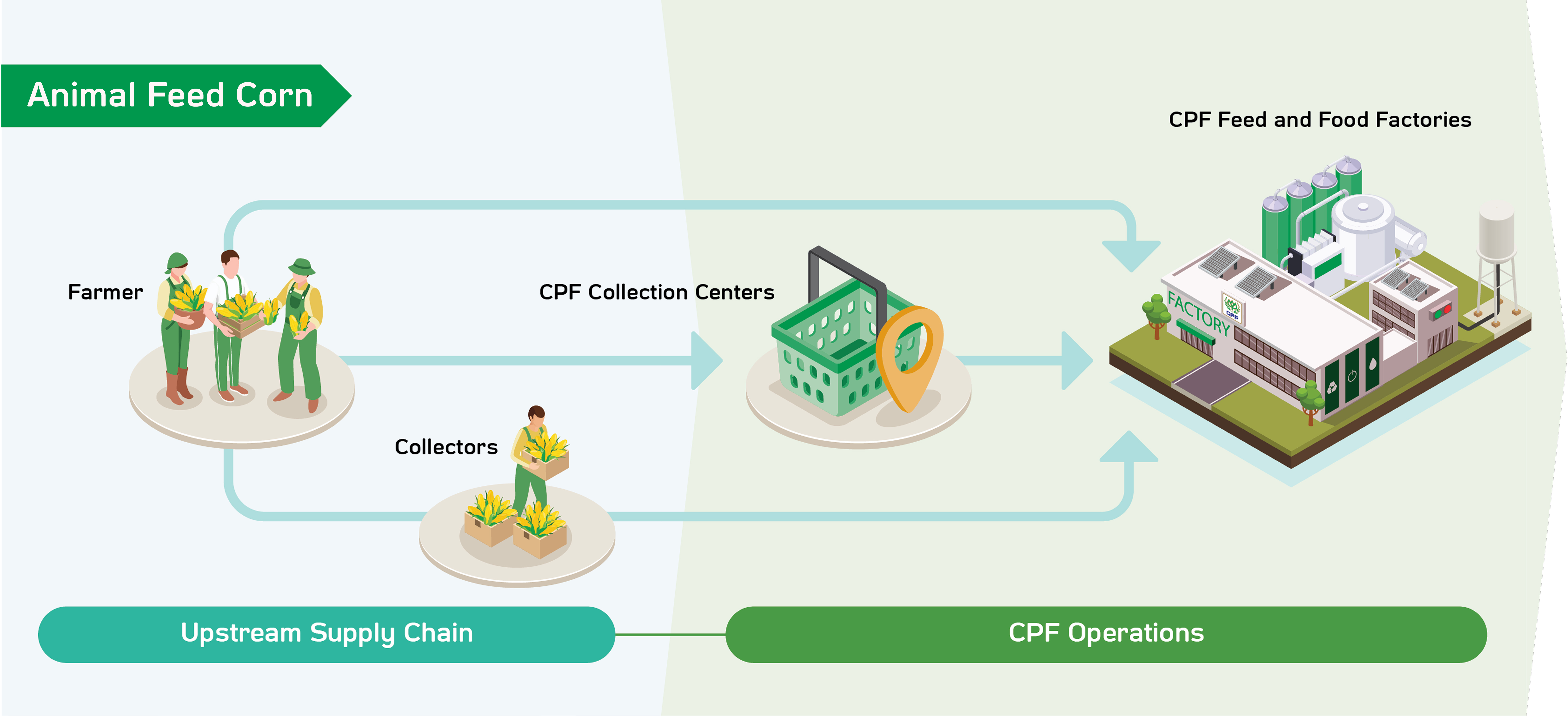
Animal Feed Corn
The Company inspects the quality of animal feed corn before purchase according to established standards and has implemented a Corn Traceability System. Since 2016, Thailand operations has developed and fully applied this system, ensuring that our supply chain is free from deforestation and stubble burning. This system, and its database, uses blockchain technology for accurate, transparent, and rapid traceability. In addition, our “For Farm” application supports the registration of farmers into traceability system, while also providing knowledge on sustainable agricultural practices.
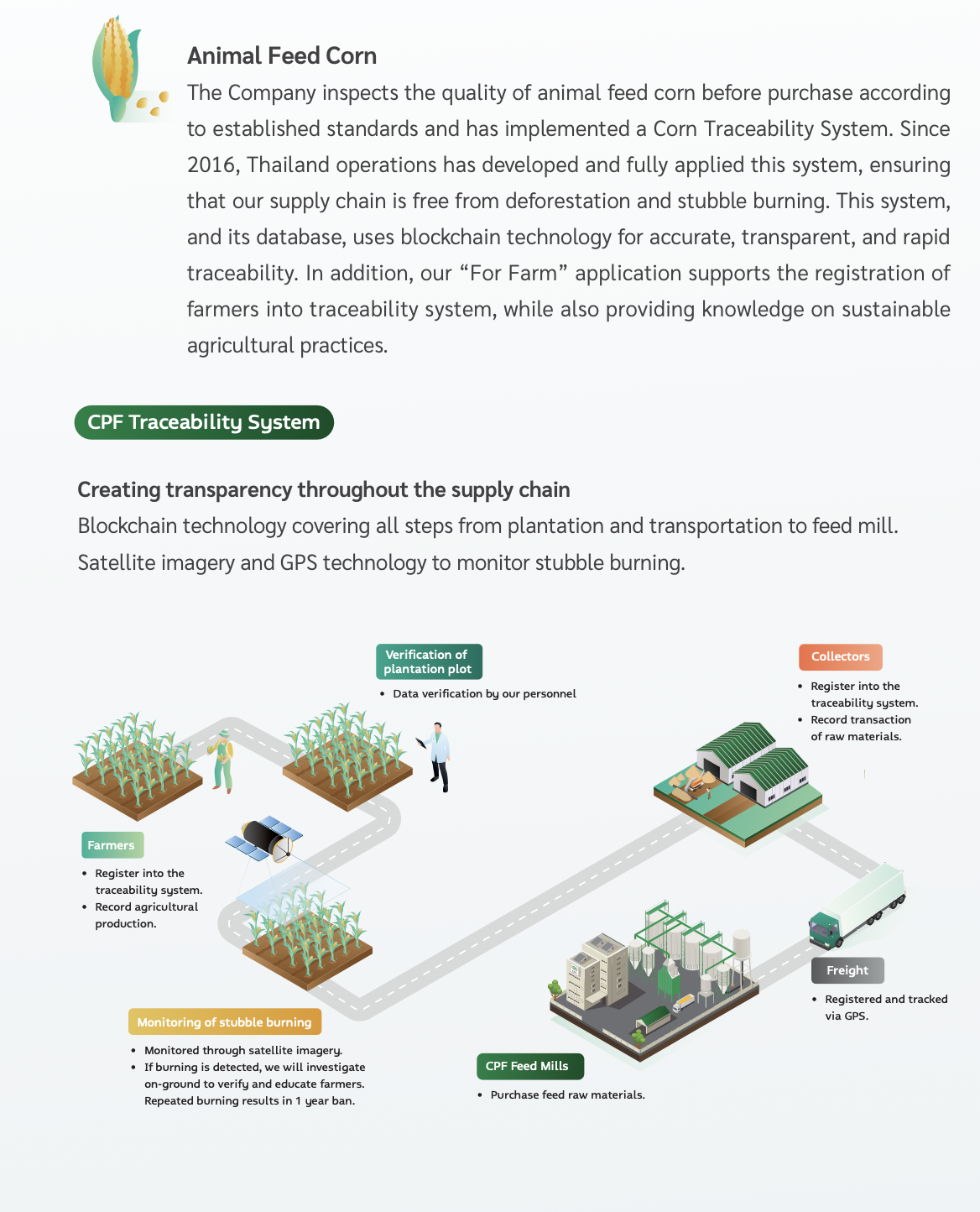
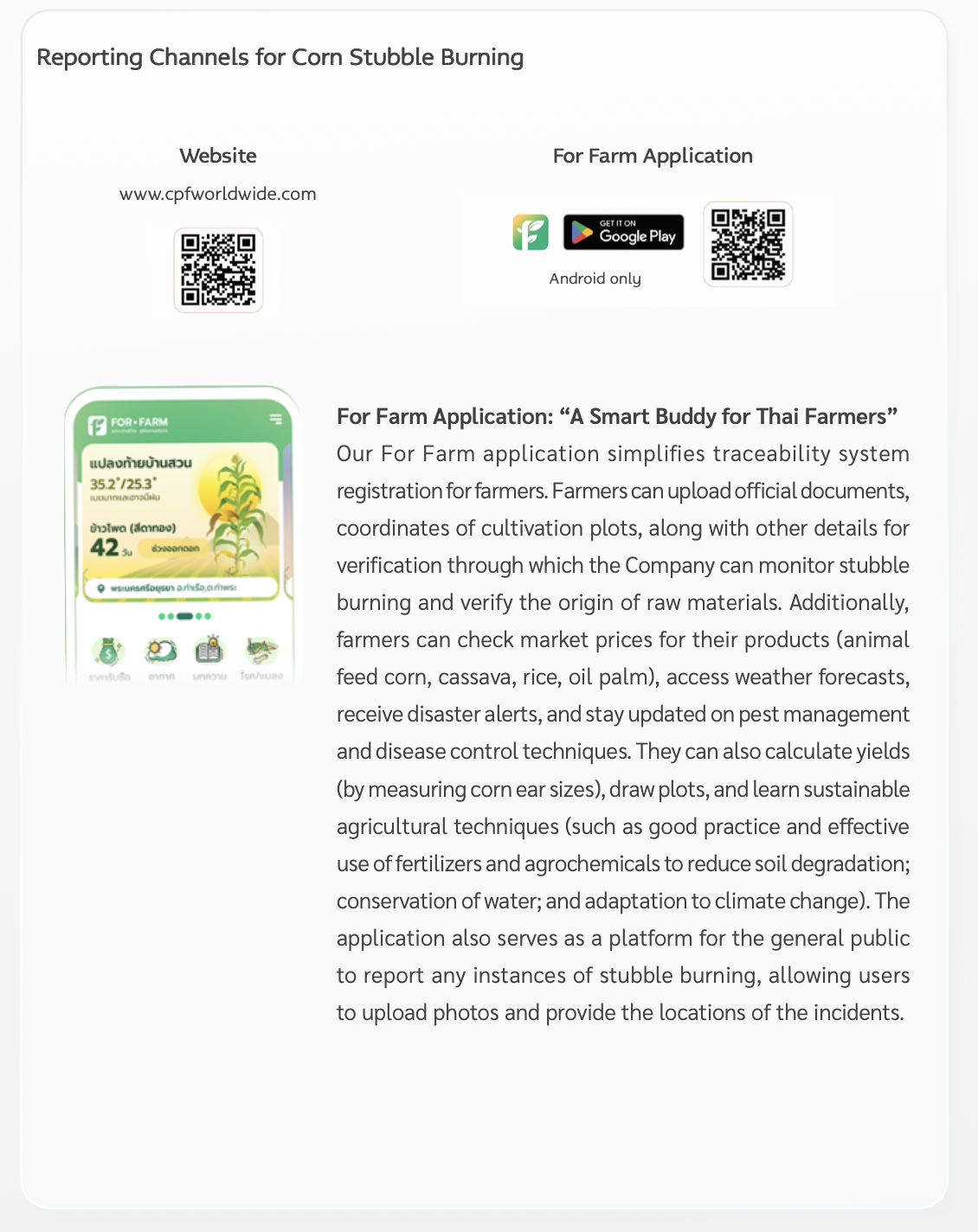
Traceability Operations Room
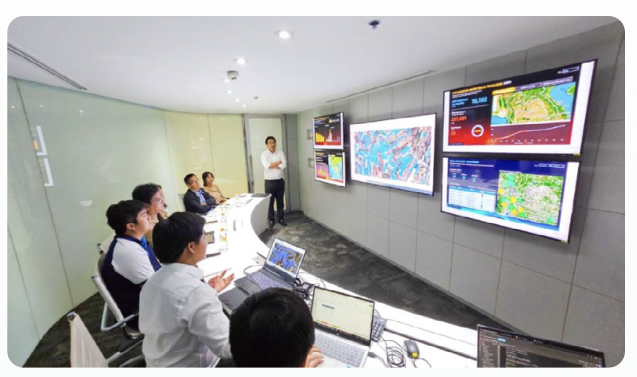
Our Traceability Operations Room monitors and manages the animal feed corn supply chain in real-time to abolish stubble burning. Employing three satellites from NASA FIRMS, satellite imagery is processed together with our cultivation plot GPS database and displayed through a Power BI intelligent dashboard. With daily information on stubble burning, the Company is able to quickly engage with farmers. This initiative supports the development of a PM2.5-free animal feed corn supply chain.
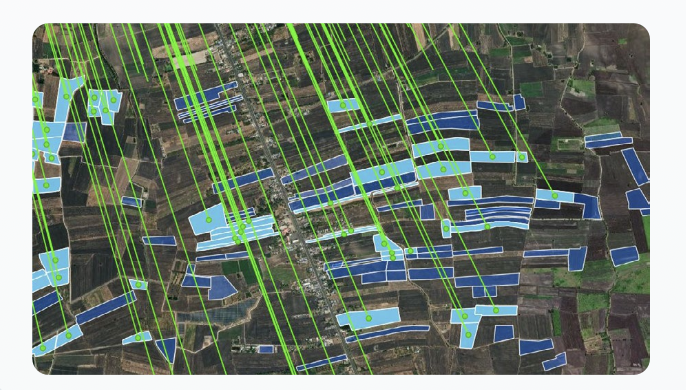
Our Traceability Operations Room monitors and manages the animal feed corn supply chain in real-time to abolish stubble burning. Employing three satellites from NASA FIRMS, satellite imagery is processed together with our cultivation plot GPS database and displayed through a Power BI intelligent dashboard. With daily information on stubble burning, the Company is able to quickly engage with farmers. This initiative supports the development of a PM2.5-free animal feed corn supply chain.
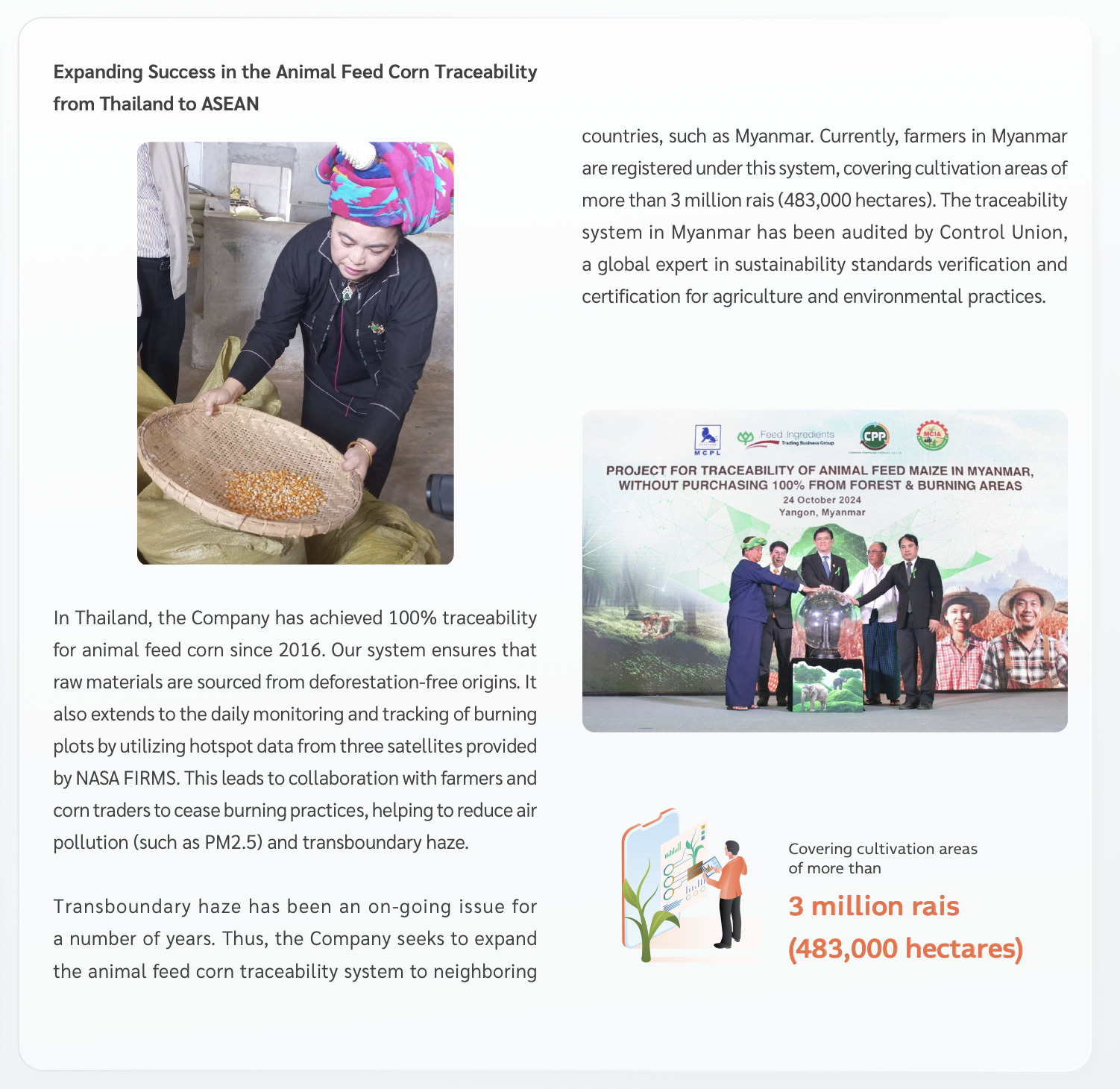
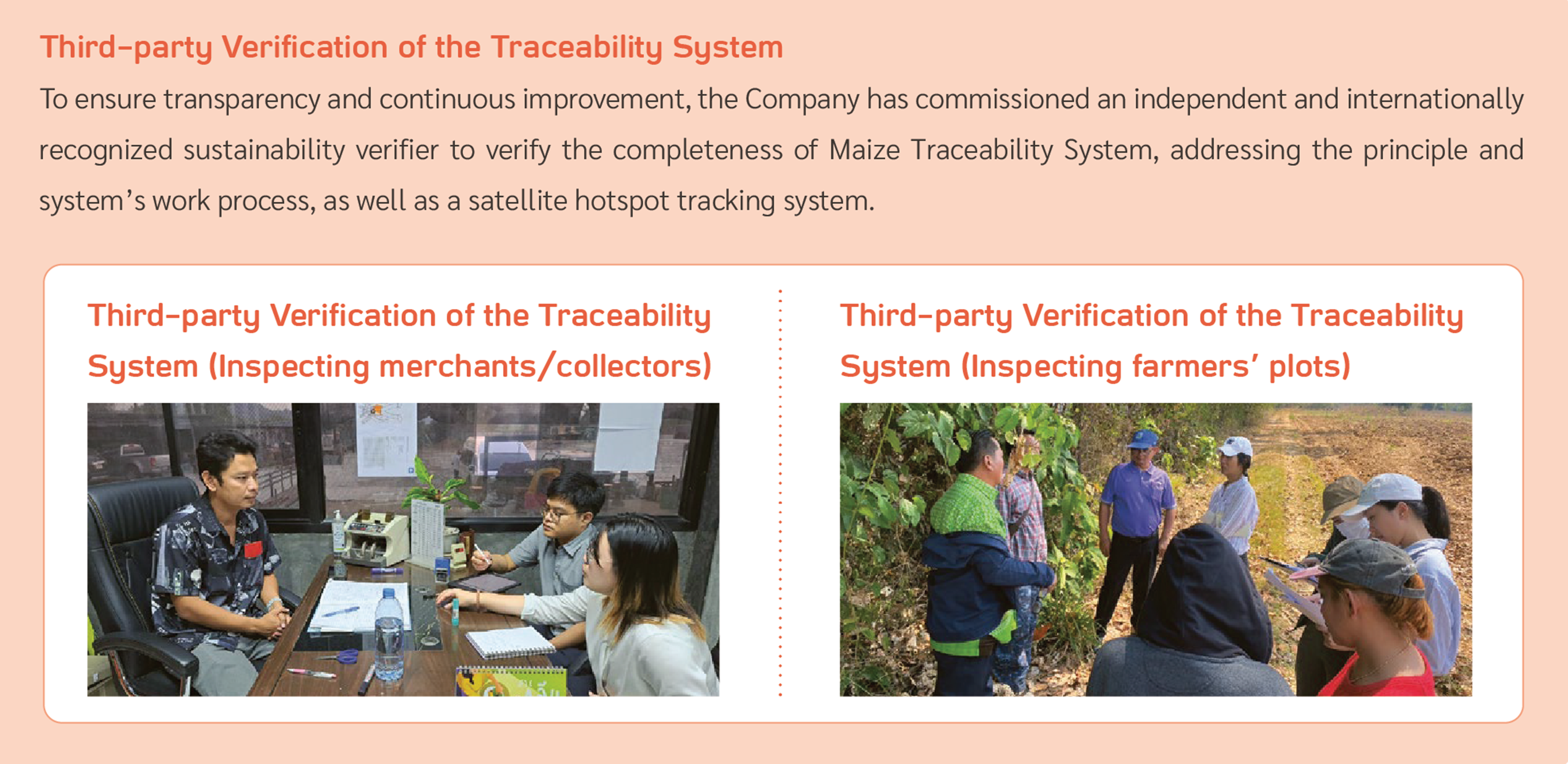
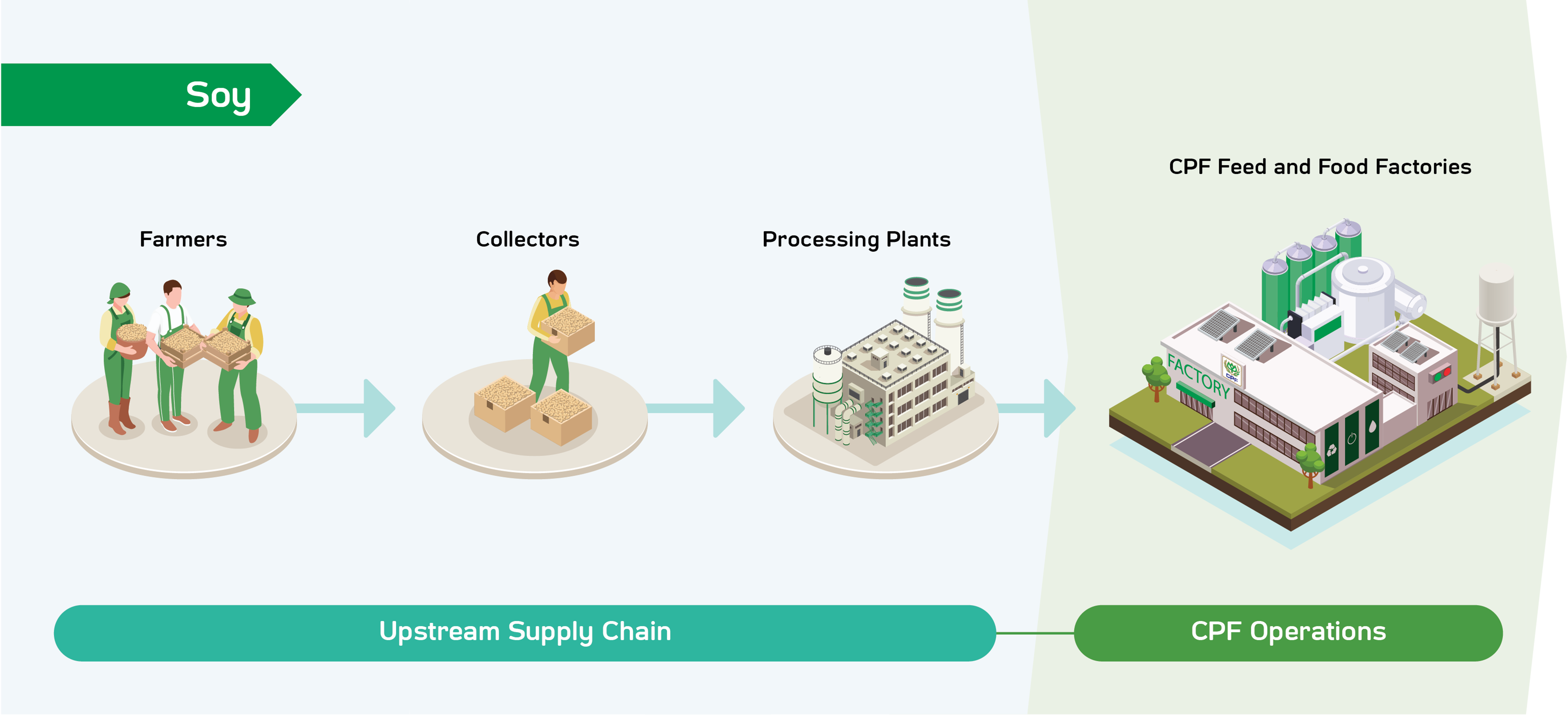
Soy
High quality soybean meal and soy products are crucial for livestock farming and food production. The Company conducts quality inspections on soybean meal before purchasing to ensure compliance with its quality standards. Furthermore, deforestation risk is analyzed across various countries of origin with a sourcing approach established for soybeans and soy products from countries at high risk. The approach requires sourcing from producers who are members of the ABIOVE Soy Moratorium, which oversees a deforestation-free soybean supply chain by committing to not purchasing or providing financial support to farmers involved in deforestation.
The Company also works with key suppliers in linking traceability systems to identify the sources of soy ingredients using blockchain technology. Moreover, the Company has partially sourced soy products certified under the Round Table on Responsible Soy Association (RTRS) and the SSAP (US Soy Sustainability Assurance Protocol), which are internationally recognized standards.
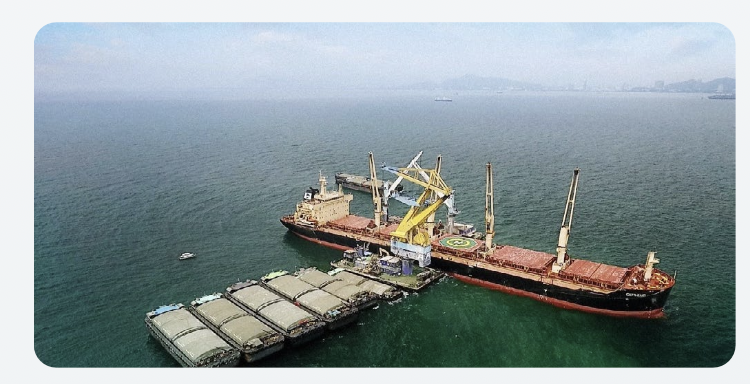
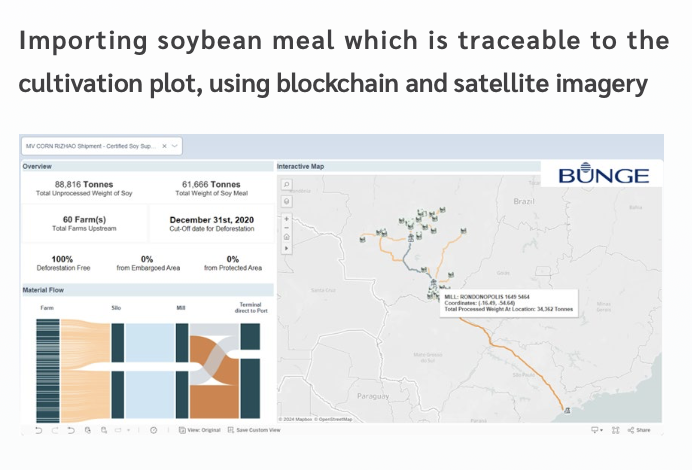
In 2024, our Thailand operations imported soybean meal from Brazil through Bunge, a global leader in agricultural ingredients. Involving six vessels, totaling 360,000 tons, the soy can be traced back to the port, the primary processing facility, and the cultivation plot, using blockchain technology and satellite imagery – to ensure its deforestation-free status. This achievement builds upon the Memorandum of Understanding established in 2023, aiming to utilizes satellite mapping to verify the sources of soy that are deforestationfree and to reduce GHG emissions.
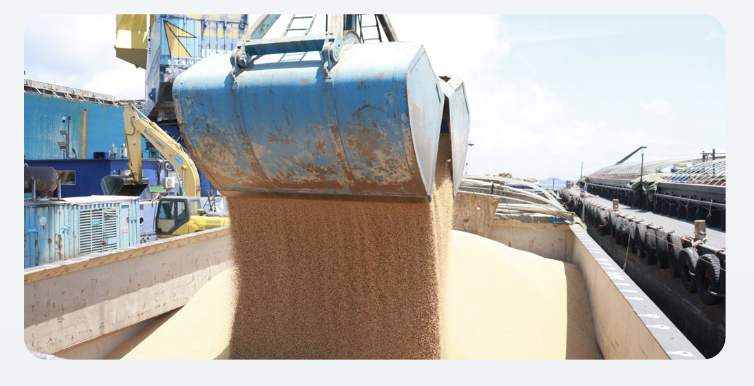
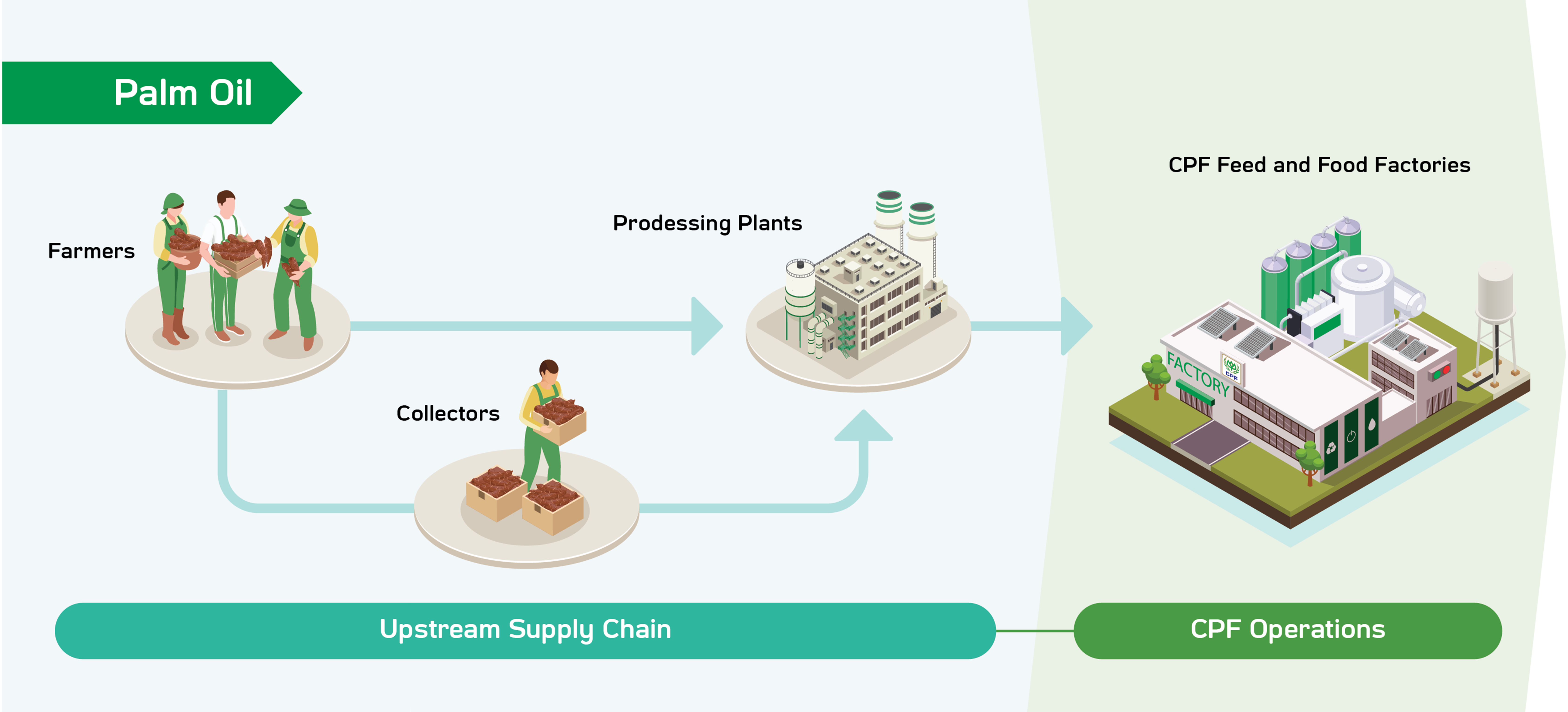
Palm Oil
The Company conducts quality control of palm oil before it enters the food and livestock feed production systems to ensure that the products comply with our standards. Furthermore, acknowledging concerns about the potential impacts caused by converting tropical rainforest to palm cultivation, our businesses in Thailand and Vietnam source a portion of palm oil under internationally certified standards, such as the Roundtable on Sustainable Palm Oil (RSPO).
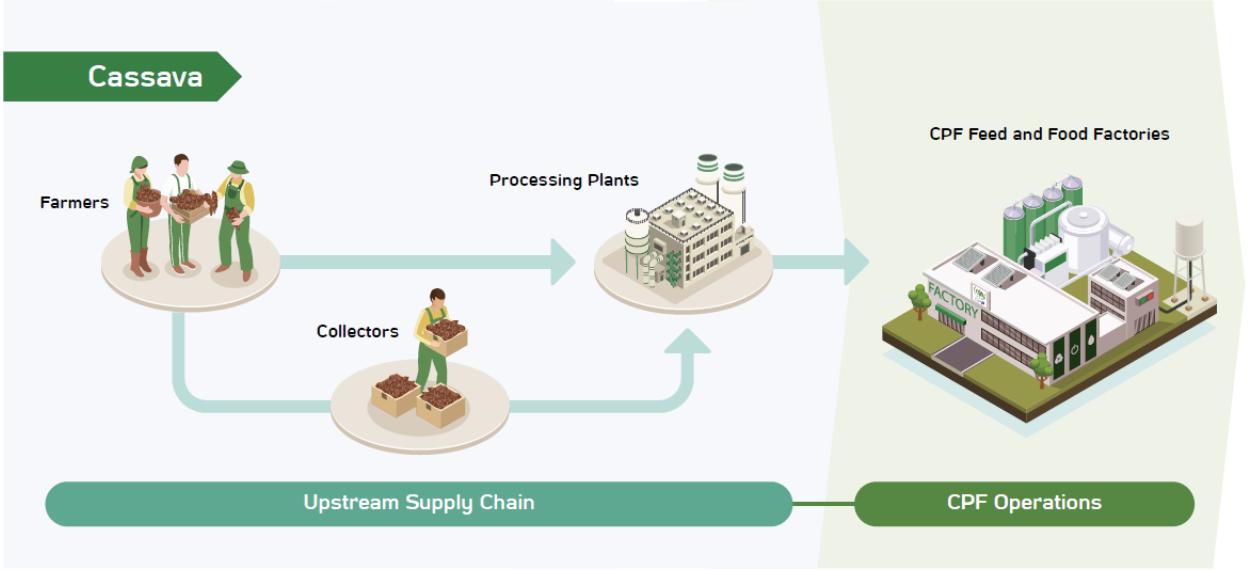
Cassava
Cassava is one of the key raw materials for the food and livestock feed industry, and the Company places great emphasis on the quality of the raw materials it purchases. The Company’s traceability for feed cassava is based upon collaboration between collectors and farmers in the supply chain who have registered with the Company’s traceability system, while direct engagement is currently applied for cassava used in food business.
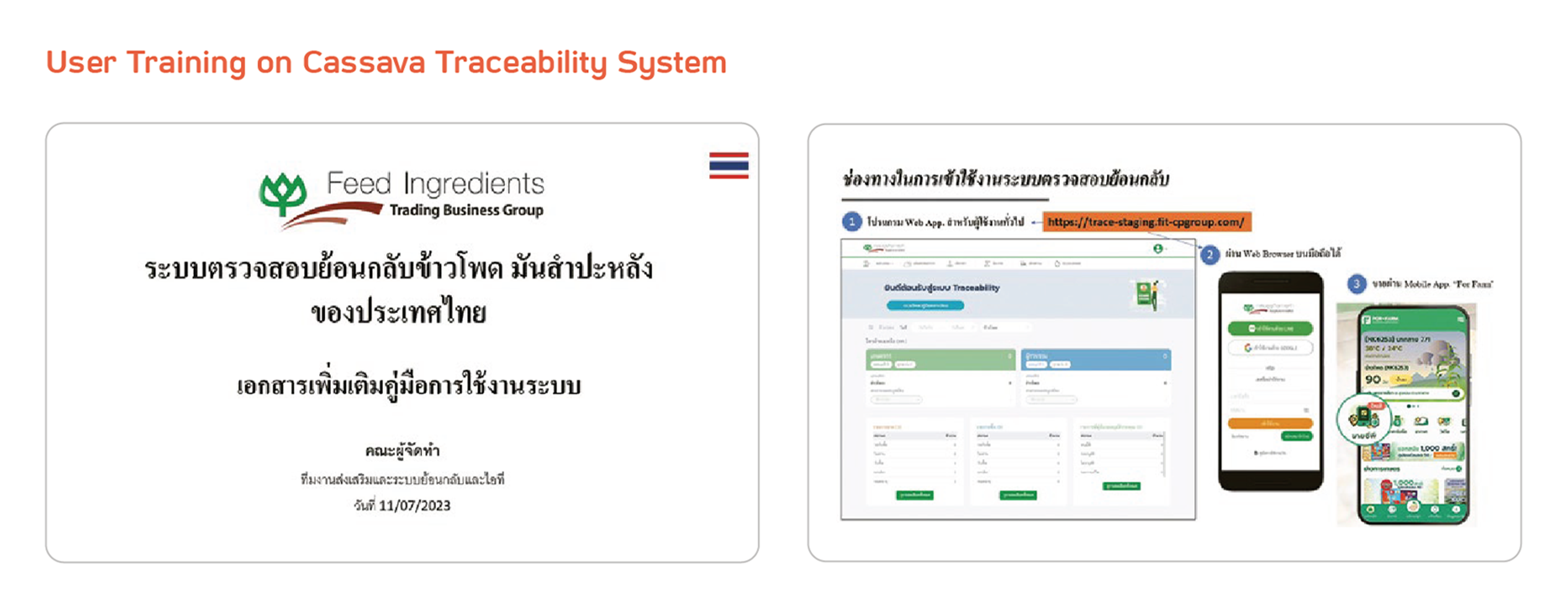
Our procurement unit in Thailand collaborates with suppliers to establish a traceability process for cassava. Major suppliers can now trace back to the cultivation plots and can verify their deforestation-free status by comparing GPS coordinates with data from GISTDA and the Department of Forestry.
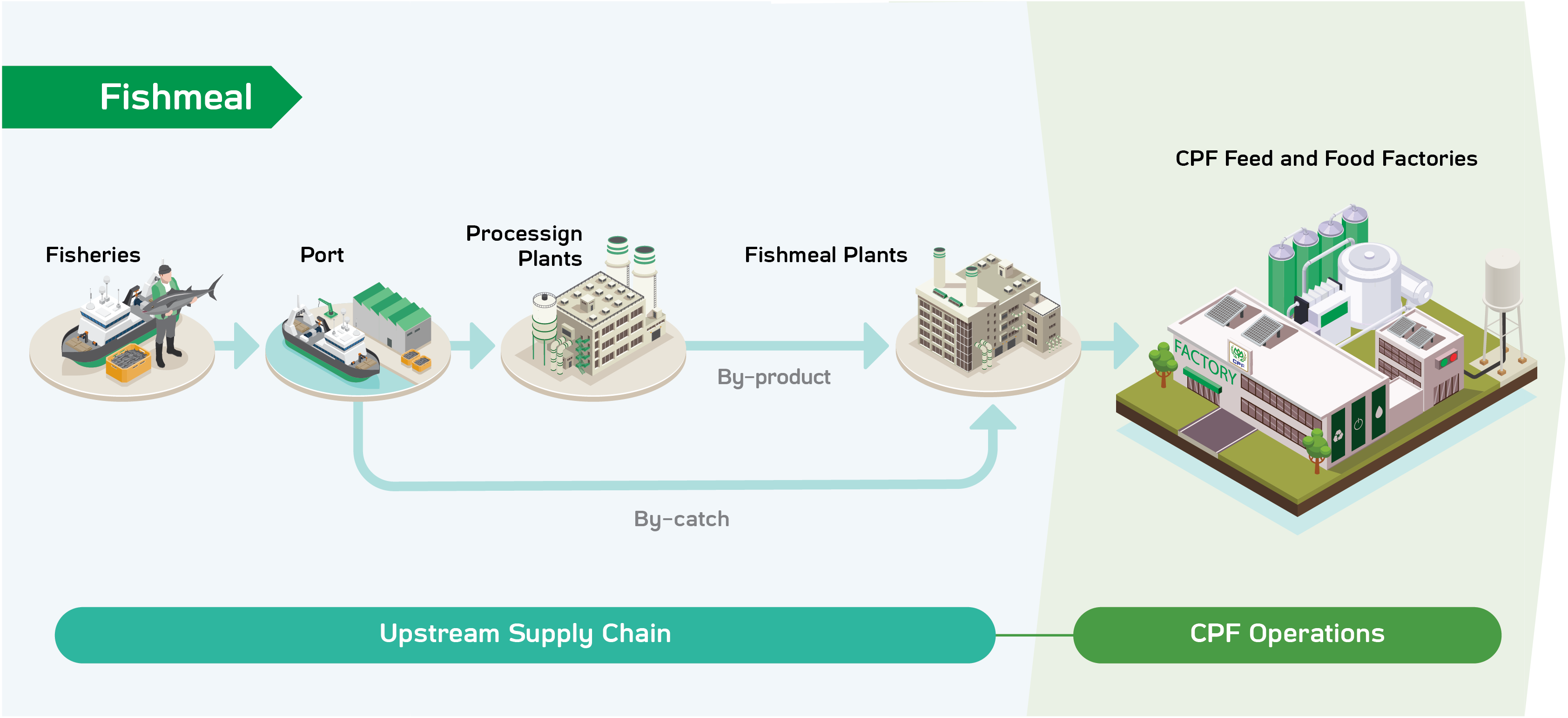
Fish Meal
The Company prioritizes quality inspections in fishmeal procurement, a key protein source in aquaculture feed. Besides, the Company recognizes that fishmeal supply chain may pose sustainability risks in both social and environmental dimensions. Although the Company is not involved in any fisheries business and does not own any fishing vessels, we have implemented our sustainable sourcing plan for fishmeal since 2013. Our CPF Fishmeal Sourcing Restrictions include:
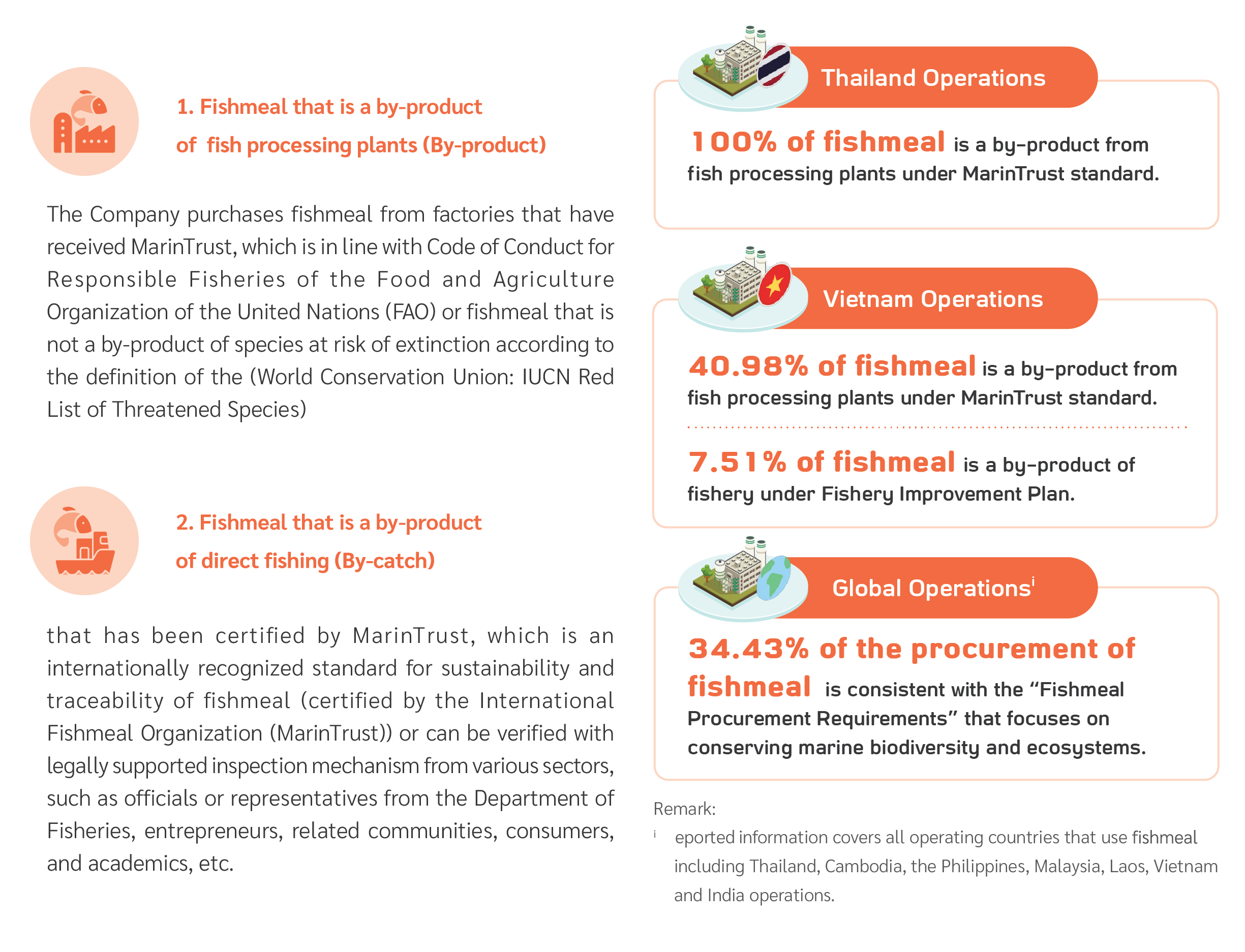
Paper
100% of food packaging in Thailand operations certified by the Forest Stewardship Council (FSC)
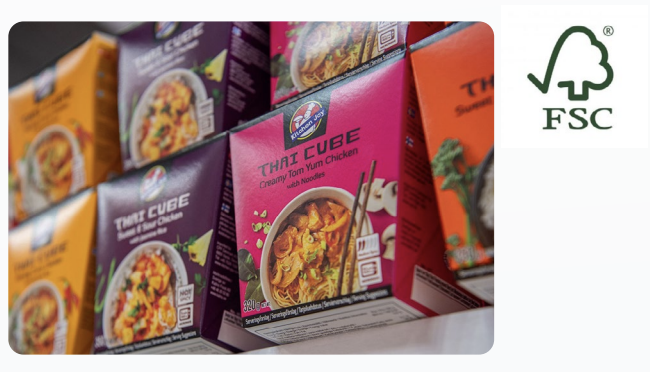
The Forest Stewardship Council (FSC) is one of the world’s most recognized standards for paper packaging, indicating sustainable and deforestation-free sources of forest products. In 2024, our Thailand operations fully transitioned to using 100% FSC packaging for domestic and exported food products, including paper trays, product boxes, and cartons.





